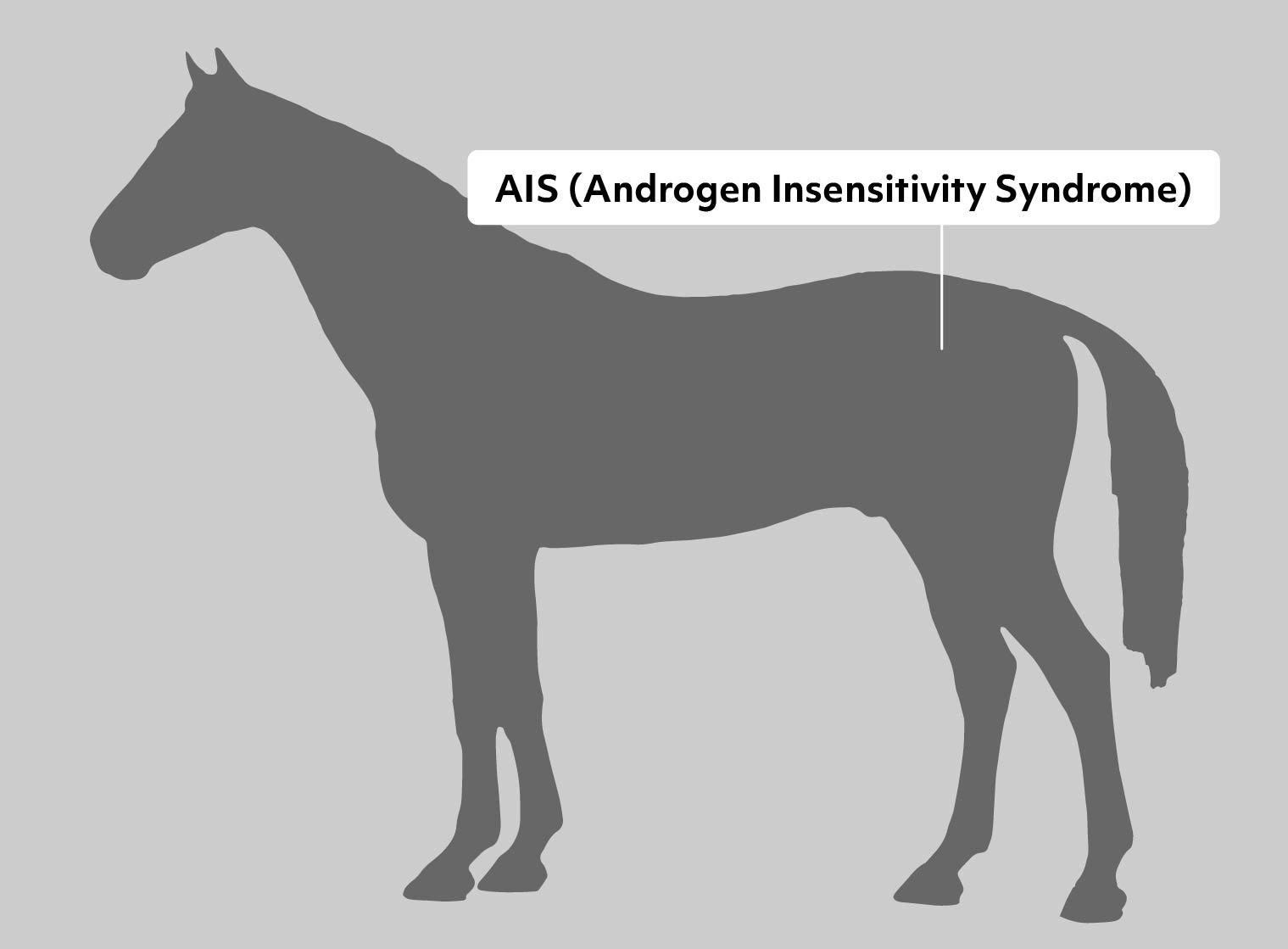Androgen Insensitivity Syndrome (AIS)
Gene or Region: AR
Reference Variant: A
Mutant Variant: G
Affected Breeds: Quarter Horses
Research Confidence: High - Findings supported by other species
Explanation of Results: AIS/AIS = homozygous for Androgen Insensitivity Syndrome, not observed AIS/n (female) = heterozygous for Androgen Insensitivity Syndrome, female carrier AIS/n (male) = heterozygous for Androgen Insensitivity Syndrome, sterile and phenotypically female n/n = no variant detected
General Description for Androgen Insensitivity Syndrome
Androgen Insensitivity Syndrome (AIS), previously known as Testicular Feminization Syndrome, is a disorder of sexual development in which a horse with a XY SRY+ karyotype appears female. Horses with AIS exhibit stallion-like behaviors, have external female genitalia, and often internal un-descended testicles.
AR is a steroid-activated transcription factor that plays a key role in normal sexual development. Mutations in other species have been noted to cause AIS and have been associated with prostate cancer. This particular mutation is a single base change that alters the start codon of the encoded protein. Though normal transcription and translation still occurs, the encoded protein likes has an altered function.
References
Révay T et al., “GTG mutation in the start codon of the androgen receptor gene in a family of horses with 64,XY disorder of sex development.” (2012) Sex Dev. 6: 108-16. PMID: 22095250
More Horse Health
Lordosis
Lordosis (L1, L2, L3, L4), also known as "Swayback", is a curvature or dip in the spine that is often seen in older horses. However, in the American Saddlebred, this condition also affects younger horses. These animals do not appear to experience pain from their condition and are still able to be used under saddle.
Malignant Hyperthermia
Malignant hyperthermia (MH) is a muscle disorder in which anesthesia, stress, or extreme exercise trigger a hyperthermic state. Symptoms include high temperature, increased heart rate, high blood pressure, sweating, acidosis, and muscle rigidity. If symptoms are not immediately resolved, death is likely to occur.
Myosin-Heavy Chain Myopathy
Myosin-Heavy Chain Myopathy (MY; previously "IMM") is a genetic muscle disease found most commonly in stock-type horses that can result in two different presentations, Immune-Mediated Myositis (IMM) and Nonexertional Rhabdomyolysis “tying up,” which are both characterized by muscle damage or loss. Both presentations are associated with the same genetic variant. Horses with MYHM may exhibit one or both presentations at different times in their lives, although some horses carrying the variant might not display any symptoms at all.
Myotonia
Myotonia (MYT) is a rare disorder involving a slowed relaxation of muscles after contraction. The most well-known example of myotonia is “fainting goats,” a breed that is characterized by sudden rigidy and/or falling over when startled. In the single documented horse, this resulted in a protruding third eyelid when excited, as well as problems with muscle stiffness.
